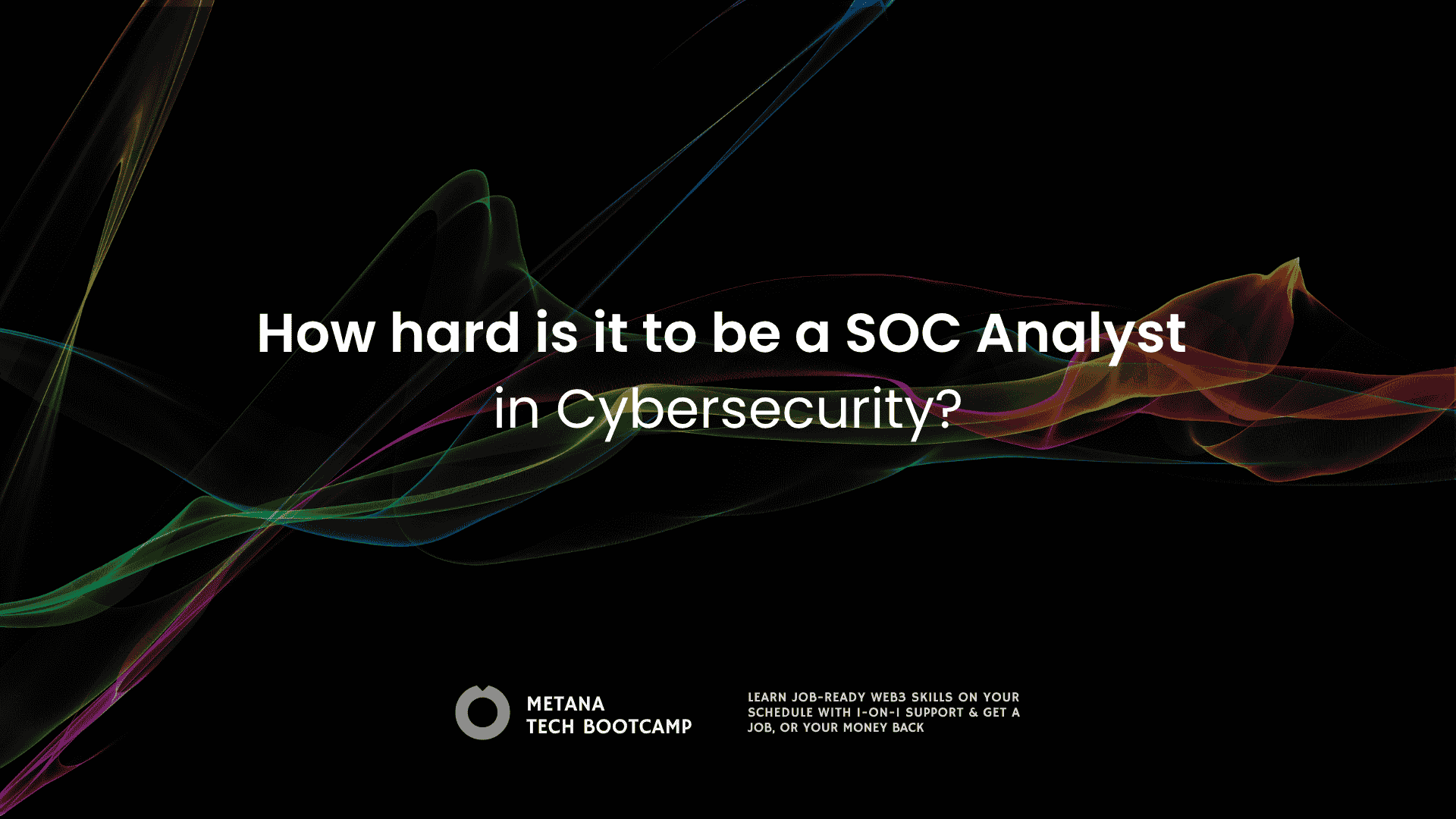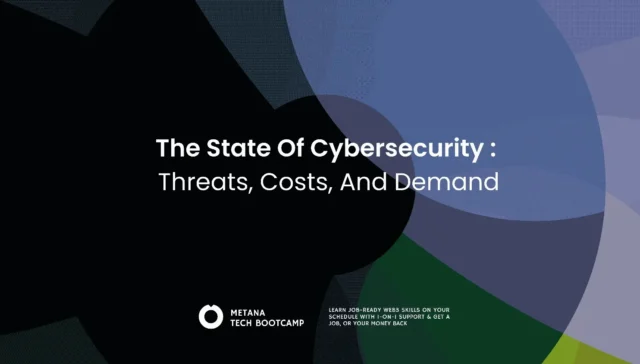Key Takeaways
- Being a SOC analyst is demanding, requiring a mix of technical skills, analytical thinking, and continuous learning to effectively tackle evolving cyber threats.
- SOC analysts face challenges like high alert volumes and burnout, but leveraging AI tools can help manage workloads and improve efficiency.
- Despite the stresses of the role, job satisfaction is high, with strong demand for SOC analysts driven by a critical talent shortage in the cybersecurity field.
A SOC analyst profile requires fast-paced problem-solving, which, at times, I have found mentally exhausting. Especially when I wasn’t prepared to handle the constant stream of alerts, shift work, and the immense pressure to respond instantly. In simple terms, being a SOC analyst demands being attentive and addressing suspicious issues as quickly as possible.
So, how hard is it to be a SOC analyst in cybersecurity? Being a SOC analyst in cybersecurity is definitely tough. It takes a mix of technical skills, sharp thinking, and the ability to handle stress. SOC analysts are the people who spot, investigate, and respond to security problems, making sure companies stay safe from cyber threats.
What is the Role of a SOC Analyst in Cybersecurity?

SOC analysts are the backbone of any security operations center (SOC), designed to detect, analyze, and respond to security incidents in real-time. They focus on safeguarding an organization’s security posture by:
- Monitoring security incidents
- Detecting security incidents
- Investigating security incidents
- Analyzing security incidents
- Responding to security incidents around the clock
This continuous alert helps to effectively monitor and quickly identify and mitigate security threats through threat hunting before they can cause significant damage.
What are the Key Responsibilities of SOC Analysts
SOC analysts perform the following key activities:
- Continuously monitor security alerts
- Detect threats
- Prioritize threats based on severity
- Investigate abnormalities
- Execute actions to limit damage when a security incident occurs
- Coordinate with other teams to ensure swift resolution
- Maintain detailed records of security alerts and incident response actions for accountability and future investigations, often guided by a giac certified incident handler.
What Skills are Essential for SOC Analysts?
SOC analyst requires a mix of technical and soft skills, including specialized skills. The most requested technical skill in job postings is expertise in Security Information and Event Management (SIEM) systems. Core capabilities include:
- Analytical thinking, which is particularly fundamental as it enables SOC analysts to interpret complex security data effectively
- Attention to detail
- Communication skills
- Technical proficiency, including the technical side of these skills
Strong communication abilities are also vital for accurately conveying security findings and collaborating with other security professionals. Junior analysts need keen attention to detail and the ability to work under pressure, crucial for handling the high-stakes environment of a security operations center (SOC).
What are the Challenges Faced by SOC Analysts?
SOC analysts face significant challenges in their daily operations.
The challenge in a SOC analyst work does not arise so much out of the technical complexity but rather it is a matter of cognitive load. The job involves long periods of no action and then there are periods when the decisions need to be made taking into consideration limited information. Warnings do not come in well-marked packages. The analysts have to distinguish between noise and risk and are aware that the false positives and missed signal have to have consequences.
Early career analysts are normally faced with volume. Even a single shift can raise hundreds of alerts with many being activated by the normal activities. Judgment develops slowly. It will take months of exposure to patterns to learn what signals should be escalated and not classrooms. The difficulty is an addition by fatigue. Constant shifts, night shifts, and incessant work take their toll even on inspired workers.
High alert volumes, analyst burnout, and the need to stay ahead of evolving cyber threats are some of the most pressing issues. Managing numerous number of daily alerts can be overwhelming, and the increasing frequency of cyber threats only adds to the complexity.
Alert Fatigue and Volume Overload
The high volume of security alerts can lead to burnout and decreased effectiveness among SOC analysts. Analysts often deal with an overwhelming number of alerts daily, leading to desensitization and the potential for real threats to be overlooked. Many of these alerts are false positives, consuming valuable time and resources that could be better spent on genuine threats.
Collaboration between human analysts and AI can significantly reduce the mean time to detect and respond to threats, helping to mitigate the effects of alert fatigue. Leveraging AI allows SOC analysts to focus on more complex and high-priority tasks, enhancing overall security operations efficiency.
Skills Gap and Staffing Shortages
The cybersecurity workforce gap exceeds 4 million, making it challenging for SOC teams to find skilled professionals for critical soc positions. This shortage leads to several significant operational challenges:
- Positions in SOCs often remain unfilled for extended periods.
- Increased alert volumes.
- Burnout among existing analysts.
- Higher turnover rates among existing analysts.
Tools and Technologies Used by SOC Analysts
SOC analysts use a range of tools and technologies to do their job effectively. Some of the key ones include Security Information and Event Management (SIEM) systems, Endpoint Detection and Response (EDR) platforms, and network monitoring software. These tools help them monitor, detect, and respond to security incidents, keeping the organization safe and running smoothly.
Beyond SIEM and EDR, SOC analysts also rely on:
- Firewalls
- Intrusion detection systems
- Antivirus software
- Encryption protocols
Together, these tools give analysts a clear view of what’s happening across systems. They help spot potential threats, investigate malware, and take action to prevent security breaches.
SIEM Systems
Security Information and Event Management (SIEM) systems are a cornerstone of SOC operations. SIEM systems:
- Centralize security data from various sources, enabling comprehensive analysis and threat detection.
- Aggregate and analyze security data from multiple sources.
- Identify anomalies in the IT environment.
- Streamline the threat detection and response process.
SIEM systems enhance the overall effectiveness of SOC operations, enabling security professionals to respond to incidents more efficiently. This centralized approach is crucial for maintaining an organization’s network security and cyber security posture.
Endpoint Detection and Response (EDR)
Endpoint Detection and Response (EDR) tools are vital for monitoring endpoint activities and responding to security threats effectively. EDR tools continuously monitor endpoints for suspicious activities and provide real-time response, enabling SOC analysts to act swiftly in the event of a security incident.
These tools are essential for incident response, as they provide detailed insights into endpoint behavior and help analysts identify and mitigate potential threats. EDR tools are a critical component of an effective incident response plan, ensuring that SOC teams can respond to security incidents promptly and efficiently.
Other Popular Tools and Technologies used in Cybersecurity
 Nmap
Nmap
Benefits of Continuous Learning for SOC Analysts
Continuous education is crucial for cybersecurity experts to keep up with evolving threats and technologies. SOC analysts must engage in continuous education to effectively handle new and evolving cyber threats, ensuring they remain effective and responsive in the face of changing cyber landscapes.
Certifications and Training Programs
Certifications are essential for SOC analysts, enhancing both hard and soft skills and improving career prospects. Key points include:
- The Certified SOC Analyst (C|SA) program helps candidates develop essential skills in security operations and incident response.
- It provides practical experience through hands-on labs and extensive use cases.
- SOC analysts should regularly participate in training and workshops to remain knowledgeable about the latest cybersecurity developments.
Participation in online communities and forums helps SOC analysts exchange insights on emerging threats and best practices.
You are never too late…
Ready to begin? Check out our coding bootcamps and take the first step toward your tech career today. For those looking to start or advance their career in cybersecurity, consider enrolling in Metana’s Cybersecurity Bootcamp, where you can learn from experts and gain practical experience on your learning path.
Staying Updated with Cybersecurity Trends
Staying updated with the latest cybersecurity trends is vital for SOC analysts to handle new and emerging threats effectively. Resources like TryHackMe provide practical experience that can be incredibly valuable, especially for those without prior industry experience. This hands-on approach helps analysts stay sharp and ready to tackle the latest security challenges.
Additionally, engaging with resources from Metana can be beneficial for SOC analysts looking to enhance their skills and knowledge. Keeping abreast of the latest security incidents, cyber threats, and cybersecurity technologies ensures that SOC analysts can maintain a robust security posture for their organizations.
Job Satisfaction and Career Outlook for SOC Analysts
SOC analysts can find a fulfilling career path with opportunities for professional growth and advancement. Metana’s job camp can help you land your dream job in cybersecurity, providing the training and support needed to excel in this high-demand field. The program guides you from the foundations of cybersecurity, through network security and threat management, ethical hacking and penetration testing, to cloud and application security. It concludes with a capstone project, giving you hands-on experience to confidently step into your cybersecurity career.
Recent graduates and those entering the cybersecurity field can expect a wealth of opportunities. The high demand, combined with the significant talent shortage, makes now an excellent time to pursue a career as a SOC analyst, a cyber security analyst, or a security analyst.
Finally
The role of a SOC analyst comes with a mix of responsibilities that require both technical know-how and strong communication skills. Working closely with other team members is key to effectively monitoring security and strengthening the organization’s defenses. This role also offers opportunities for professional growth, letting analysts expand their knowledge and advance their careers.
In short, being a SOC analyst is both challenging and rewarding. From constantly learning new things to using advanced tools and playing a crucial part in keeping the digital world safe, it’s a dynamic and fulfilling career. With the right skills, training, and dedication, SOC analysts can really thrive in this fast-changing field.
Frequently Asked Questions
What is a SOC analyst?
A SOC analyst is a cybersecurity expert who monitors and responds to security incidents in a Security Operations Center. They play a crucial role in keeping our digital environments safe and secure.
What tools do SOC analysts use?
SOC analysts rely on tools like SIEM systems, EDR platforms, firewalls, intrusion detection systems, and antivirus software to protect against threats effectively. These tools are essential for maintaining security and responding to incidents.
How does AI impact the role of SOC analysts?
AI significantly streamlines the work of SOC analysts by automating routine tasks and enhancing threat detection. This frees up their time for more complex analyses and strategic decision-making.
Why is there a skills gap in the cybersecurity field?
The skills gap in cybersecurity exists because there are over 4 million unfilled positions, driven by a growing demand for experts and the quick pace of evolving cyber threats. As a result, finding skilled professionals for Security Operations Center (SOC) teams has become increasingly difficult.
What certifications are beneficial for SOC analysts?
Getting certified as a Certified SOC Analyst (C|SA) is a great move since it boosts your hard and soft skills while giving you practical experience in security operations and incident response. It’s a solid way to enhance your qualifications in the field!







